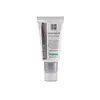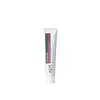What's inside
What's inside
 Key Ingredients
Key Ingredients

 Benefits
Benefits

 Concerns
Concerns

 Ingredients Side-by-side
Ingredients Side-by-side

Water
Skin ConditioningAzelaic Acid
BufferingPropylene Glycol
HumectantPropanediol
SolventAlpha-Arbutin
AntioxidantDimethyl Sulfone
SolventStrontium Chloride Hexahydrate
Skin ConditioningIsononyl Isononanoate
EmollientGlycerin
HumectantCyclopentasiloxane
EmollientDimethyl Isosorbide
SolventGlyceryl Stearate
EmollientPEG-100 Stearate
Cetyl Palmitate
EmollientSodium Hydroxide
BufferingPropolis Extract
Skin ConditioningPhenoxyethanol
PreservativeXylitol
HumectantDimethicone
EmollientAnhydroxylitol
HumectantArachidyl Alcohol
EmollientCetyl Alcohol
EmollientBehenyl Alcohol
EmollientCitrus Medica Peel Oil
Parfum
MaskingXylitylglucoside
HumectantArachidyl Glucoside
EmulsifyingCaprylyl Glycol
EmollientSodium Phytate
Glucose
HumectantCitric Acid
BufferingPotassium Sorbate
PreservativeSodium Benzoate
MaskingAlcohol
AntimicrobialWater, Azelaic Acid, Propylene Glycol, Propanediol, Alpha-Arbutin, Dimethyl Sulfone, Strontium Chloride Hexahydrate, Isononyl Isononanoate, Glycerin, Cyclopentasiloxane, Dimethyl Isosorbide, Glyceryl Stearate, PEG-100 Stearate, Cetyl Palmitate, Sodium Hydroxide, Propolis Extract, Phenoxyethanol, Xylitol, Dimethicone, Anhydroxylitol, Arachidyl Alcohol, Cetyl Alcohol, Behenyl Alcohol, Citrus Medica Peel Oil, Parfum, Xylitylglucoside, Arachidyl Glucoside, Caprylyl Glycol, Sodium Phytate, Glucose, Citric Acid, Potassium Sorbate, Sodium Benzoate, Alcohol
Water
Skin ConditioningAzelaic Acid
BufferingOctyldodecyl Myristate
EmollientIsononyl Isononanoate
EmollientIsostearyl Isostearate
EmollientCetyl Alcohol
EmollientGlyceryl Stearate
EmollientEthoxydiglycol
HumectantGlycerin
HumectantCoco-Caprylate/Caprate
EmollientNiacinamide
SmoothingXylitol
HumectantPEG-75 Stearate
Pentylene Glycol
Skin ConditioningCetearyl Alcohol
EmollientCeteth-20
CleansingSteareth-20
CleansingGlyceryl Caprylate/Caprate
EmollientWater, Azelaic Acid, Octyldodecyl Myristate, Isononyl Isononanoate, Isostearyl Isostearate, Cetyl Alcohol, Glyceryl Stearate, Ethoxydiglycol, Glycerin, Coco-Caprylate/Caprate, Niacinamide, Xylitol, PEG-75 Stearate, Pentylene Glycol, Cetearyl Alcohol, Ceteth-20, Steareth-20, Glyceryl Caprylate/Caprate
 Reviews
Reviews

Ingredients Explained
These ingredients are found in both products.
Ingredients higher up in an ingredient list are typically present in a larger amount.
Azelaic acid is a multitasker ingredient that helps treat acne, pigmentation, and irritation. It is a great option for sensitive skin.
What makes azelaic special?
The best thing about azelaic acid is it's gentleness. It's generally well-tolerated and safe to use alongside other actives like niacinamide or salicylic acid.
Unlike AHAs, azelaic acid will not make you photosensitive/sun sensitive.
You can find this ingredient naturally occurring in grains like wheat, rye, and barley. In cosmetics, azelaic acid is typically lab-made, which is more stable and effective.
Learn more about Azelaic AcidCetyl Alcohol is a fatty alcohol. Fatty Alcohols are most often used as an emollient or to thicken a product.
Its main roles are:
Though it has "alcohol" in the name, it is not related to denatured alcohol or ethyl alcohol.
The FDA allows products labeled "alcohol-free" to have fatty alcohols.
Learn more about Cetyl AlcoholGlycerin is already naturally found in your skin. It helps moisturize and protect your skin.
A study from 2016 found glycerin to be more effective as a humectant than AHAs and hyaluronic acid.
As a humectant, it helps the skin stay hydrated by pulling moisture to your skin. The low molecular weight of glycerin allows it to pull moisture into the deeper layers of your skin.
Hydrated skin improves your skin barrier; Your skin barrier helps protect against irritants and bacteria.
Glycerin has also been found to have antimicrobial and antiviral properties. Due to these properties, glycerin is often used in wound and burn treatments.
In cosmetics, glycerin is usually derived from plants such as soybean or palm. However, it can also be sourced from animals, such as tallow or animal fat.
This ingredient is organic, colorless, odorless, and non-toxic.
Glycerin is the name for this ingredient in American English. British English uses Glycerol/Glycerine.
Learn more about GlycerinGlyceryl Stearate is a mix of glycerin and stearic acid.
It is used to stabilize the mixing of water and oil ingredients. By preventing these ingredients from separating, it can help elongate shelf life. It can also help thicken the product's texture.
As an emollient, it helps soften skin and supports barrier-replenishing ingredients.
In cosmetics, Glyceryl Stearate is often made from vegetable oils or synthetically produced.
This ingredient may not be fungal-acne safe
Fun fact: The human body also creates Glyceryl Stearate naturally.
Learn more about Glyceryl StearateIsononyl Isononanoate is a synthetic skin-conditioner and texture enhancer. It is created from nonanoic acid, a fatty acid found in cocoa and lavender oil.
As an emollient, Isononyl Isononanoate helps keep your skin soft and smooth. This is because emollients create a barrier on the skin to trap moisture in.
Isononyl Isononanoate helps give products a velvet feel and improves spreadability.
Learn more about Isononyl IsononanoateWater. It's the most common cosmetic ingredient of all. You'll usually see it at the top of ingredient lists, meaning that it makes up the largest part of the product.
So why is it so popular? Water most often acts as a solvent - this means that it helps dissolve other ingredients into the formulation.
You'll also recognize water as that liquid we all need to stay alive. If you see this, drink a glass of water. Stay hydrated!
Learn more about WaterXylitol is a humectant and prebiotic. It can help with dry skin.
In studies, xylitol has been shown to improve dry skin. It decreased transepidermal water loss, or when water passes through the skin and evaporates. Xylitol also showed to help improve the biomechanical properties of the skin barrier.
The prebiotic property of xylitol may also help reinforce our skin's natural microbiome. Having a healthy microbiome prevents infection by bad bacteria and helps with hydration.
As a humectant, Xylitol helps draw moisture from both the air and from deeper skin layers. This helps keep skin hydrated.
Xylitol is a sugar alcohol and commonly used as a sugar substitute. It is naturally occurring in plants such as strawberries and pumpkin.
Learn more about Xylitol